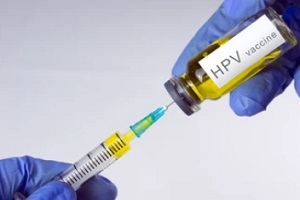 The human papillomavirus (HPV) is a very concerning virus. Although it often goes away on its own, it can sometimes lead to medical issues such as genital warts and cervical cancer. Thanks to modern medicine, vaccines are available that can help protect people from HPV-related diseases. Although it has a demonstrated safety and efficacy profile, it is important to weigh the pros and cons of hpv vaccine before deciding whether or not the vaccine is right for you.
The human papillomavirus (HPV) is a very concerning virus. Although it often goes away on its own, it can sometimes lead to medical issues such as genital warts and cervical cancer. Thanks to modern medicine, vaccines are available that can help protect people from HPV-related diseases. Although it has a demonstrated safety and efficacy profile, it is important to weigh the pros and cons of hpv vaccine before deciding whether or not the vaccine is right for you.
Here is a look at the advantages and drawbacks of the Gardasil vaccine.
The Pros of The Gardasil Vaccine
Here are some of the top reasons people choose to get this vaccine.
It Offers Prevention Against Some Types of Cancer
Gardasil is one of the few vaccines on the market that offers some protection against cancer. Gardasil and Gardasil 9 have both been approved by the U.S. Food and Drug Administration (FDA) to protect against HPV.
HPV is extremely common, with nearly everyone expected to get HPV at some point in their lives. It is spread through intimate skin-to-skin contact, such as vaginal, oral, or anal sex, and it can be transmitted even if the infected person is not currently experiencing any signs or symptoms of the virus.
More than 42 million Americans currently have an HPV infection with a type that can cause disease, the CDC reports. Approximately 13 million Americans are infected each year.
While it is important to note that most HPV infections will go away by themselves fairly quickly, it can sometimes last longer and lead to certain types of cancer. Gardasil vaccine can protect against HPV types 16 and 18, which can eventually lead to vulvar, anal, and cervical cancer.
It Offers Protection Against Genital Warts
 The Gardasil vaccines also offer protection against two strains known for causing genital warts, strains 6 and 11. Genital warts are not dangerous, but they can be unsightly and annoying. They have a cauliflower-like appearance, and some people might get several of them at once. They can occur in various sizes and may be itchy at times but are generally not painful.
The Gardasil vaccines also offer protection against two strains known for causing genital warts, strains 6 and 11. Genital warts are not dangerous, but they can be unsightly and annoying. They have a cauliflower-like appearance, and some people might get several of them at once. They can occur in various sizes and may be itchy at times but are generally not painful.
They are fairly common and spread easily during oral, vaginal, and anal sex or even skin-to-skin contact in those areas. They can be spread even when there are no visible signs. Therefore, the protection offered by the vaccine can help stop the spread of this frustrating problem.
It Has A Good Track Record
Since HPV vaccines like Gardasil were introduced in the U.S., HPV infections, cervical precancers, and genital warts have all dropped. Infections with the types of HPV that lead to most HPV cancers as well as genital warts have decreased by 88 percent among teens and 81 percent among young adult women.
Cons Of The Gardasil Vaccine
Here are some potential drawbacks to consider when deciding whether to get the vaccine.
It May Cause Side Effects
Like all vaccines, there is the possibility of experiencing side effects following the Gardasil vaccination. Although many people will not have any problems, some may experience mild to moderate side effects such as swelling and pain at the injection site, headache, fever, muscle or joint pain, nausea, diarrhea, vomiting, abdominal pain, or fatigue.
Some people may faint after getting the shot, particularly adolescents, so you will be asked to sit or lie down for 15 minutes following injection to avoid injuring yourself if you faint and fall down.
It Does not Prevent All HPV-Related Cancers Or STDs
Another drawback of the Gardasil vaccines is that they do not prevent every type of HPV-related cancer. Although their protection is very valuable, it will still be necessary to get routine Pap tests to look for any signs of cervical cancer.
It is also important to keep in mind that the vaccines provide no protection against other types of sexually transmitted diseases (STDs). This means that those who are not educated on what the vaccine does and does not do may engage in risky behavior, thinking that they are protected from all STDs. It is important to be aware that it will remain necessary to use barrier methods such as condoms during sex to prevent the transmission of other type of STDs.
The Schedule For The Gardasil Vaccine Can Be Complicated
 This is not a serious drawback, but the vaccine’s schedule can be a bit complex. Therefore, it is best to talk to your doctor about whether you need the vaccine and when is the right time to get it. The CDC recommends it be given around age 11 or 12, at which time most children will not have been exposed to the HPV strains it protects against, allowing them to get the optimum benefits.
This is not a serious drawback, but the vaccine’s schedule can be a bit complex. Therefore, it is best to talk to your doctor about whether you need the vaccine and when is the right time to get it. The CDC recommends it be given around age 11 or 12, at which time most children will not have been exposed to the HPV strains it protects against, allowing them to get the optimum benefits.
Those who get it at age 11 or 12 will need two doses 6 to 12 months apart; anyone who received their second shot less than 5 months after the first will need three doses. Adults and teens who are older than 14 need three doses across 6 months,
Reach Out To Raleigh Gynecology & Wellness
To learn more about whether Gardasil is right for you, get in touch with the women’s healthcare professionals at Raleigh Gynecology &Wellness. Serving the Triangle Area for more than three decades, Raleigh Gynecology & Wellness offers a comprehensive range of services with an emphasis on patients’ comfort.

 Gardasil has not been linked to fertility problems, and the Centers for Disease Control & Prevention notes that not getting an HPV vaccine can leave people at risk for the types of cancer that could compromise fertility. For example, people who develop cancer that is caused by HPV may need treatment such as
Gardasil has not been linked to fertility problems, and the Centers for Disease Control & Prevention notes that not getting an HPV vaccine can leave people at risk for the types of cancer that could compromise fertility. For example, people who develop cancer that is caused by HPV may need treatment such as  The
The  Although the HPV vaccine can help reduce your chances of developing HPV-related cancer, it is not intended to replace
Although the HPV vaccine can help reduce your chances of developing HPV-related cancer, it is not intended to replace  HPV is a broad term, and many of its strains are relatively harmless and may clear on their own. However, some types can cause health problems ranging from genital warts to certain types of cancer.
HPV is a broad term, and many of its strains are relatively harmless and may clear on their own. However, some types can cause health problems ranging from genital warts to certain types of cancer.  The side effects of the HPV vaccine are typically mild. Some of the more common effects of it include swelling, redness at the injection site, and soreness. In some cases, dizziness or fainting may occur immediately afterward, so it is recommended to remain sitting for 15 minutes post-injection. Some people may also experience headaches, fatigue, nausea, vomiting, or weakness.
The side effects of the HPV vaccine are typically mild. Some of the more common effects of it include swelling, redness at the injection site, and soreness. In some cases, dizziness or fainting may occur immediately afterward, so it is recommended to remain sitting for 15 minutes post-injection. Some people may also experience headaches, fatigue, nausea, vomiting, or weakness.  Unfortunately for many women,
Unfortunately for many women,  Other women experience secondary dysmenorrhea, which is menstrual pain that may be traced to one of the following disorders.
Other women experience secondary dysmenorrhea, which is menstrual pain that may be traced to one of the following disorders. During menstruation, you may find that avoiding foods linked to bloating and water retention provides some relief by alleviating cramps and decreasing tension. These include caffeine, salty foods, fatty foods, carbonated beverages, and alcohol. Quitting smoking may also help make periods less painful.
During menstruation, you may find that avoiding foods linked to bloating and water retention provides some relief by alleviating cramps and decreasing tension. These include caffeine, salty foods, fatty foods, carbonated beverages, and alcohol. Quitting smoking may also help make periods less painful.